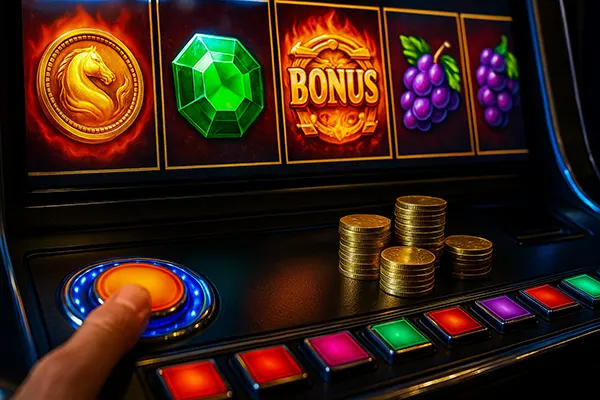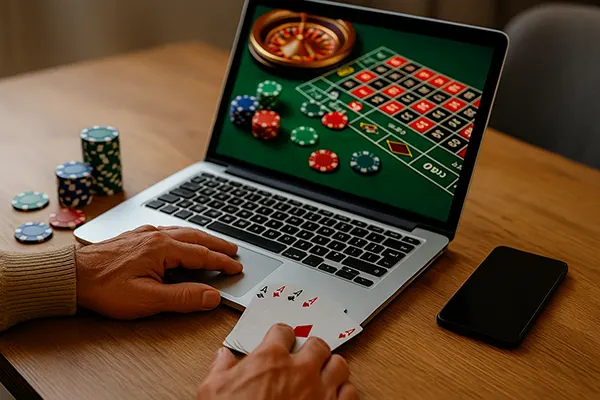
Advantage Players: How Skilled Gamblers Gain an Edge Over Casinos
In the gambling industry, most games are designed to ensure a mathematical advantage for the operator. However, there exists a category of highly skilled individuals known as advantage players. These players dedicate years to studying probabilities, observing patterns, and applying strategies that allow them to turn the odds slightly in their favour. Unlike cheating, advantage play is legal, though often unwelcome by casinos. Understanding how these players operate sheds light on both the sophistication of their techniques and the countermeasures applied by operators.
The Concept of Advantage Play
Advantage play refers to the use of legal strategies that reduce or even eliminate the built-in edge of a casino game. Such strategies require advanced knowledge, patience, and mental discipline. Unlike casual gamblers, advantage players rely less on chance and more on mathematical precision and behavioural analysis. Their goal is not to rely on luck but to transform games of chance into contests of skill.
One of the most widely recognised techniques is card counting in blackjack. By tracking the ratio of high to low cards remaining in the deck, skilled players can predict the likelihood of favourable outcomes and adjust their bets accordingly. When executed correctly, this method can shift the advantage from the casino to the player, albeit by only a small margin. This requires years of practice and excellent memory skills.
Other approaches include exploiting promotions, observing jackpot cycles in slot machines, or studying opponents’ habits in poker. These practices remain within the boundaries of legality, but they rely on insights that the average visitor simply does not possess. For casinos, the presence of such players represents both a challenge and a constant need for vigilance.
Common Techniques Used by Advantage Players
Card counting remains the most iconic, but it is far from the only tool in an advantage player’s arsenal. Edge sorting, for instance, involves identifying subtle differences in the back design of playing cards, allowing players to predict high-value cards in games like baccarat. While controversial, courts have debated whether such actions constitute cheating or legitimate observation.
In poker, “angle shooting” refers to exploiting ambiguous situations in ways that remain technically within the rules. This may involve manipulating betting behaviour to confuse opponents or exploiting weaknesses in tournament structures. While frowned upon in professional circles, it remains part of the broader spectrum of advantage play techniques.
Another method includes tracking progressive jackpots. Some players monitor when jackpot machines are “overdue” statistically, attempting to time their play when the expected return exceeds 100%. This requires collaboration, patience, and detailed statistical knowledge, demonstrating how advantage play often overlaps with deep mathematical analysis.
Casino Responses to Advantage Play
Casinos are well aware of the existence of advantage players and have developed multiple countermeasures to protect their profits. Surveillance teams, often referred to as “the eye in the sky,” carefully monitor unusual betting patterns. Staff are trained to recognise behaviours associated with card counting or jackpot tracking. Modern casinos also rely heavily on advanced data analysis to identify irregular play.
In blackjack, common responses include reshuffling decks more frequently or using continuous shuffling machines that make card counting nearly impossible. Similarly, slot machines have moved towards random number generators with complex encryption to prevent prediction of outcomes. These changes are specifically designed to protect the mathematical edge built into the games.
Some casinos take more direct actions, such as asking suspected advantage players to leave or banning them entirely. In extreme cases, information about these individuals is shared among operators, creating an informal blacklist. This raises ongoing debates about player rights and the boundary between legal strategy and unfair advantage.
The Ethical Debate Around Advantage Play
Advantage play exists in a grey area of ethics. On one hand, it is entirely legal, relying on observation, discipline, and intelligence rather than any form of manipulation or cheating. On the other, casinos view it as a direct threat to their business model and often argue that it violates the spirit of fair play.
Critics argue that strategies such as angle shooting in poker blur the line between skill and exploitation, undermining the social contract of the game. Supporters, however, claim that casinos themselves use every possible edge against players, from house rules to payout structures, making advantage play a natural counterbalance.
Ultimately, the ethical dimension depends on perspective. From a player’s point of view, advantage play is a reward for dedication and mastery. From a casino’s perspective, it is a costly loophole to be closed. The ongoing tension reflects the broader dynamic between risk-taking individuals and institutions built on probability.

The Future of Advantage Play
As technology advances, the landscape of advantage play continues to evolve. Online gambling and live dealer games have introduced new opportunities and challenges for players attempting to gain an edge. Digital surveillance and algorithmic monitoring make detection easier for operators, but innovative strategies continue to emerge.
Artificial intelligence and machine learning could both strengthen casinos’ defences and inspire new methods for skilled players. While predictive software helps detect irregular behaviour, players also explore digital tools to track probabilities or simulate outcomes more effectively. The technological arms race ensures that the subject of advantage play will remain relevant for years to come.
Furthermore, legal debates surrounding advantage play are likely to intensify. Courts and regulators may need to clarify what constitutes permissible skill and what crosses into manipulation. For players committed to finding every possible edge, the challenge lies not only in mastering mathematics but also in staying one step ahead of evolving rules.
Balancing Skill and Regulation
The sustainability of advantage play depends on how regulators, casinos, and players negotiate the boundaries of fairness. Stricter rules may limit certain strategies, but players often adapt quickly, discovering new ways to apply their expertise. This constant cycle ensures that advantage play remains both a fascinating study of human ingenuity and a persistent challenge for operators.
Some experts suggest that casinos might eventually embrace advantage players, viewing them as a unique form of publicity and challenge for ordinary customers. However, the financial risks associated with this stance make it unlikely to become mainstream. The prevailing trend points instead to tighter controls and more sophisticated monitoring systems.
In the end, advantage play reflects the broader human desire to overcome systems designed to favour the house. As long as gambling exists, there will always be individuals willing to push the limits of skill, patience, and probability in search of a marginal edge.





